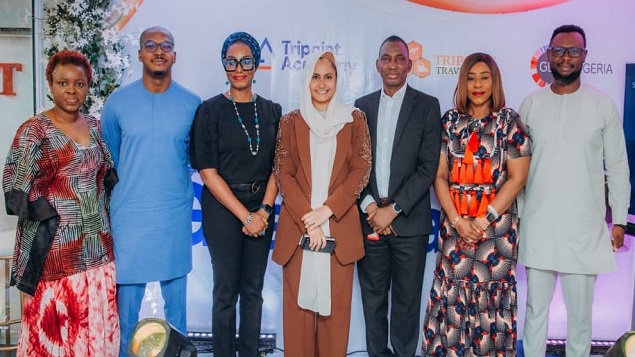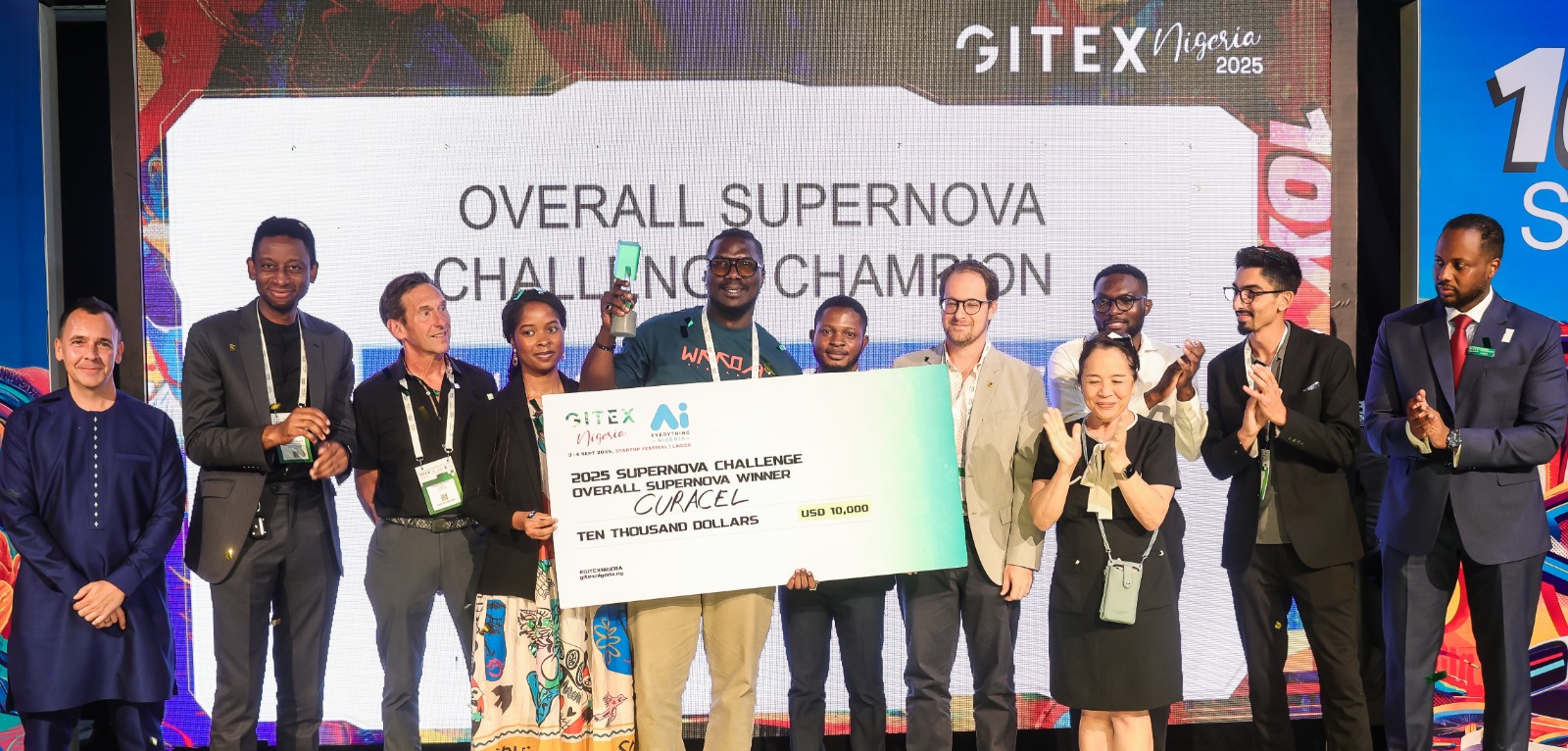General News
Will the Internet Shutdown Today?

So Internet services are expected to go off today…well, that’s what the experts warned us about last week about an impending Malware that would take over PCs and other connected devices.
According to Microsoft’s safety and security centre, “Malware is short for ‘malicious software.’
Malware is any kind of unwanted software that is installed without your adequate consent. Viruses, worms, and Trojan horses are examples of malicious software that are often grouped together and referred to as malware.”
Microsoft noted that “cybercriminals sometimes try to trick you into downloading rogue (fake) security software that claims to protect you against malware. This rogue security software might ask you to pay for a fake product, install malware on your computer, or steal your personal information.”
The computer shutdown news has generated so much anxiety in the West (not so in Nigeria though as our lives depend less on computers and connected devices), with the American FBI (federal bureau of investigations) have already set up a special website to mitigate a possible shutdown.
The FBI notes that more than 277,000 computers are infected globally – a scale down from April’s 360,000. The United States alone is said to house about 64,000 of these ‘infected’ PCs.
In Canada, the Internet registration authority claims some 25,000 PCs affected by the malware resides in the massive North American territory. But last week, it re-configured that figure to just 7,000 computers.
CIRA said it has harmonized strategies with the country’s public safety agency and the radio-television telecommunications commission, to develop an online site to enable citizens confirm if their systems were malware infected.
But this could also be another dimension of ongoing global cyber warfare that threatens the soul of the modern day man. Lately, the US and Israel have been linked with a number of cyber attacks against enemy infrastructure – specifically the Iranian nuke-facilities.
Last June, the Iranian authorities accused the US, Israel and Britain of strategizing on “an operation to launch a massive cyber attack against Iran’s facilities following the meeting between Iran and the P5+1 in Moscow.”
Reports link the latest malware threat supposedly began in 2011 when FBI agents attempted to stop hackers from taking control of some 570, 000 computers worldwide.
The hackers had allegedly ran online ad campaign scam to take control of the PCs, and in an attempt to take down the spam sites, the FBI feared they could damage victims systems, so they let them be.
“In a highly unusual move, the FBI set up a safety net. They brought in a private company to install two clean Internet servers to take over for the malicious servers so that people would not suddenly lose their Internet.
“And while it was the first time they’d done something like that, FBI officials acknowledged that it may not be the last, since authorities are taking on more of these types of investigations.
The temporary Internet system they set up, however, will be shut down at 12:01 a.m. EDT Monday, July 9.”
Authorities claim in several instances, “most victims don’t even know their computers have been infected, although the malicious software probably has slowed their online surfing and disabled their antivirus software, making their machines more vulnerable to other problems.”
However, last week both Facebook and Google put up banners warning of the impending doom and advice on how to mitigate the effects of such occurrences.
FBI claims several ISPs are ready for the problem and have plans help their customers mitigate such an occurrence.
Some firms like Comcast have sent out notices and posted information on websites.
With a prior knowledge of possible infection to a customer’s Internet server, Comcast sent an email, letter or Internet notice to customers whose computers appeared to be affected.
Global social media leaders, Facebook and Google sent warning messages that showed up if someone using either site appeared to have an infected computer. Facebook users would get a message that says: “Your computer or network might be infected,” with link users can click for further information.
Google users got a similar message, displayed at the top of a Google search results page. It also provides information on correcting the problem.
Meanwhile, Google denies claims its Android-based phones have been infected with a virus that causes the devices to send out spam en masse, according to BBC reports.
Terry Zink, Microsoft researcher claimed last week to have discovered evidence that Android phones have been infected to create a botnet, which generates huge amounts of spam from host devices.
Google said in a statement that there was no evidence to support the claim that Android devices sent the spam.
The company’s investigation suggested that spam messages originated from PCs but were formatted to look like they were sent from Android smartphones.
“Our analysis suggests that spammers are using infected computers and a fake mobile signature to try to bypass anti-spam mechanisms in the email platform they’re using,” the Google statement said.
General News
Queen Simone Speaks on Economic Empowerment @ Women Allying Women Conference 2025

HM Queen Wa Arian Simone, CEO of the Fearless Fund and founder of Fearless Freedom, joined women leaders at the Women Allying Women (WAW) Conference on Thursday last week in Cape Coast.

The annual gathering, convened by Her Royal Majesty Olori Atuwatse III (Queen Consort, Warri Kingdom, Nigeria), carried the theme “Collective Power, Lasting Impact: Women Leading Ghana’s Sustainable Transformation.”
She participated in a panel session “From the Crown to the Boardroom: Transgenerational Wisdom for Ghana’s Transformation,” alongside eminent women leaders who shared perspectives on how tradition, governance, and intergenerational wisdom can shape the future of Ghana and Africa at large.
“As an African Queen committed to women’s empowerment and fair access to capital, being part of Women Allying Women is not only purposeful, but it is also a divine alignment. This is more than a gathering; it is a diasporic and royal bridge rooted in legacy and destiny. I count it a privilege to do God’s work in the earth, together and in fellowship,” said HM Queen Wa Arian Simone, expressing her delight at being part of the conference
The conference featured an exceptional lineup of women leaders, including Ambassador Elsie Appau-Ku Essi, Technical Adviser at the Ministry of Foreign Affairs and Regional Integration, Ghana; Mrs. Maame Efua Houadjeto, CEO of Ehub Ghana; Ms. Hayat Asckhar, lawyer and Managing Partner at Ethereal Limited; Mrs. Baaba Ankrah, CEO of GIBS Café; Petra Aba Asamoah, General Manager at Media General Ghana; Angela Bamford, media personality and entrepreneur; Ms. Arabba Koomson, journalist and life coach; and Stephanie Busari, journalist and CNN Bureau Head, Lagos.
HM Queen Arian Simone’s participation reaffirms Fearless Freedom’s global mission to stop economic inequality and support economic freedom, champion financial inclusion, amplify voices and opportunities for all across the continent and beyond.
General News
Tripoint Travels Launches Internship Programme to Tackle Youth Unemployment

Tripoint Travels has taken the bold first step in addressing one of Nigeria’s most pressing challenges: Youth unemployment, unemployability and underemployment. Through its newly launched Tripoint Academy Internship Programme, the organisation is pioneering a model that trains young Nigerians to be truly employable, while also offering them real job opportunities.

The first cohort of the six-month programme graduated this weekend in Lagos. Out of seven interns, three have already been offered jobs at Tripoint Travels, while partner organisations are considering others.
Mrs Shuhda Muhammed, Managing Director of Tripoint Travels and founder of Tripoint Academy, described the programme as a prototype designed to prove that Nigerian Youths, when given the right skills and guidance, can become assets to any industry.
“I came to the realisation, being an entrepreneur myself and running Tripoint Travels, that we need to have good employees. What that means is, we need intrapreneurs in our organisations for us to be able to grow, scale up and thrive in any industry. And one of the challenges we’ve been facing as entrepreneurs is employment, employability, because most of the youths out there are already educated.” She said.
The MD of Tripoint Travels has referred to this programme as more than an internship – but as the start of a movement. Mrs Muhammed hopes to see more organisations adopt this model and has urged them to grow talents to grow a workforce of employable young Nigerians who are ready to stay, work and thrive in Nigeria.
The Tripoint Academy Internship Programme combines hands-on business training with personal development, designed to turn graduates into Intrapreneurs who bring creativity, responsibility and growth mindsets into the workplace.
Industry stakeholders lauded the initiative. Dr. Olawale Anifowose, Managing Director of the Global Entrepreneurship Network (Nigeria), praised Tripoint’s bold step; he said that “Tripoint Travels has confronted one of the biggest challenges businesses face, which is talent management and finding the right people to work within their company. By equipping young people with practical skills, they are setting an example other organisations should follow”.
One of the graduates, Taiwo Fapohunda, echoed the impact of the programme, and said, “ It has been an eye-opener that has shifted me to become a better person. With the skills and confidence I have gained, I know I can grow and contribute meaningfully in the world of aviation and beyond”
Tripoint Travels is calling on entrepreneurs, organisations and institutions to replicate this model, scale it up and help curb unemployment across the country.
“This is just the beginning”, Mrs Muhammed added. “This is the first trial, and it came out amazing. We’ve shown that it can work, now imagine the impact on the economy if a greater number of organisations across Nigeria can adopt this approach”
General News
Nigerian Entrepreneurs Are the Architects of the Digital Future, Says Lagos Deputy Governor at GITEX Nigeria 2025

The inaugural GITEX NIGERIA concluded in a tremendous fashion this Thursday in Lagos, as West Africa’s largest tech, AI, and startup show cast a spotlight on the influence of emerging local and regional entrepreneurs.

Held under the patronage of H.E. Bola Ahmed Tinubu GCFR, President of the Federal Republic of Nigeria, GITEX NIGERIA took place across Abuja and Lagos from 1-4 September. Supported by the Federal Ministry of Communications, Innovation and Digital Economy with the National Information Technology Development Agency (NITDA), the event was endorsed by Lagos State Government and organised by KAOUN International, global producer of GITEX events.
Taking place in Nigeria’s commercial and innovation capital, the GITEX NIGERIA Startup Festival showcased the strength and depth of an ecosystem through which talent development pathways and digital infrastructure projects are accelerating Nigeria’s US$1 trillion economy ambition.
Deputy Governor of Lagos State, H.E. Dr. Kadri Obafemi Hamzat, hailed its immediate impact at the national level, declaring: “GITEX NIGERIA sends an inspirational message to every Nigerian: that many positive things are transpiring across our country and opportunities are here. For every attendee at the GITEX NIGERIA Startup Festival, this has been immediately apparent.
“We see many young citizens and entrepreneurs, with enormous innovative minds, making a real difference – generating interest, raising capital, and overcoming challenges by bringing their ideas to life and delivering tangible impact. Such outcomes are crucial because they show that, as the world evolves, so too does Nigeria – as a nation of leaders, innovators, and architects of digital future we envisage.”
Central to Nigeria – and Africa’s – digital sovereignty is upskilling and expanding grassroots talent and organisations. As the largest regional showcase of its kind and a convergence point for local and international stakeholders embracing digital transformation, the GITEX NIGERIA Startup Festival was perfectly timed to support this mandate.
Over 650 startups from 27+ countries and 29 different industries participated with a shared vision of co-creating tech architecture across multiple sectors undergoing continent-wide digitisation. Its strategic programme included Nigeria’s most globally diverse investor programme, innovation hub showcases, and curated meetings between startups, investors, corporates, governments, industry leaders, and prospective partners.
Speaking after the recent announcement of funding 75 new research projects for startups, researchers, corporates and Nigerian diaspora for digital innovation, the Hon. Bosun Tijani, Minister of Communications, Innovation and Digital Economy of the Federal Republic of Nigeria said: “The opportunity and responsibility lies with all of us to build a resilient, innovative, and globally connected ecosystem, one that ensures that Nigeria not only keeps pace with the digital future but also shapes it. To all enterprises, corporates, startups, academia, and partners, we offer a transparent and accelerated path to collaboration, investment, and cooperation with Nigeria. Let us accelerate the development of the digital economy not only for Nigeria, but for Africa and the world.”
Supporting the multi-sector disruption ranging from education and agriculture through manufacturing and energy, startup participation was bolstered by hundreds of organisations brought by local engagement and international innovation hub partnerships.
Within Nigeria, NITDA, Lagos State, FATE Foundation, Co-creation Hub Africa (CcHUB), and Orange Corners were among the partners, while internationally, the United Nations Development Programme (UNDP), American Business Council (ABC) contributed.
Mr. Kashifu Inuwa Abdullahi, Director General/CEO, NITDA, said: “Across Africa and around the globe, future-oriented partnerships are the lifeblood of thriving startup ecosystems and digital economies. By uniting ambitious organisations from instrumental sectors in the emerging digital economy, we demonstrate how collaboration fuels innovation, accelerates transformation, and empowers Nigerians and Africans to shape their digital future.”
Universally recognised as the world’s leading pitch competition for early-stage companies and emerging entrepreneurs, the Supernova Challenge made its regional debut at West Africa’s largest tech, AI, and startup show – culminating in action-packed Thursday final.
Across two days in Nigeria’s innovation capital, the continent’s brightest and boldest disruptors joined Nigeria’s most visionary startups in competing for a US$22,000 total prize pool across six categories – showcasing game-changing solutions transforming agritech, cybersecurity, edtech, e-commerce, healthtech, telecom, and more.
Following the semi-finals 24 hours prior, the remaining contestants battled it out for valuable cash prizes and unprecedented visibility as regional and international investors watched on.
Abdul-Jabbar Momoh, VP, from Nigerian startup Curacel – revolutionising health insurance with AI-driven solutions – emerged as the most outstanding finalist among the expert judging panel and was awarded the US$10,000 first prize for its AI-driven health insurance solution.
Reflecting on the at GITEX NIGERIA, Momoh said: “Placing first at the GITEX NIGERIA Supernova Challenge gives us more visibility and fuel our expansion across Europe, Middle East and Africa, as well as North America. Most importantly we are going to keep on impacting lives in Africa and around the world by deploying solutions to move health insurance distribution.”
The winners across each Supernova Challenge category were as follows:
- Overall Supernova Champion (US$10,000): Curacel
- AI category (US$2,000): Build Africa
- Digital Finance category (US$2,000): InCash
- Creative Economy & Martech (US$2,000): Hadiya
- Agritech & Energy (US$2,000): Acecore
- Mobility & Smart Cities (US$2,000): Kara
- Disruptor Award (US$2,000): HiPrep
For more information, news and updates on GITEX NIGERIA, please visit gitexnigeria.ng.

 Telecom3 days ago
Telecom3 days agoMTN to Shut Down 2G, 3G Services in Ghana

 News3 days ago
News3 days agoZinox, KongaCares Launch 1m Laptop Drive to Transform Nigerian Schools

 E-Business3 days ago
E-Business3 days agoFirm Warns of a New Credential-stealing Campaign via Facebook

 E-Financial3 days ago
E-Financial3 days agoNOA Urges Nigerians to Reclaim N190Bn Unclaimed Dividends

 News3 days ago
News3 days agoTUC Labels 5 Percent Tax on Petroleum Products ‘Economic Wickedness’, Threatens Strike

 E-Financial3 days ago
E-Financial3 days agoPalmPay Champions Trust, Local Partnerships at GITEX Nigeria 2025

 General News3 days ago
General News3 days agoAfrinvest Marks 30 Years, to Unveil 20th Banking Sector Report

 General News3 days ago
General News3 days agoKeyamo Orders NCAA to Name, Shame Airlines over Breach of Aviation Rules






















